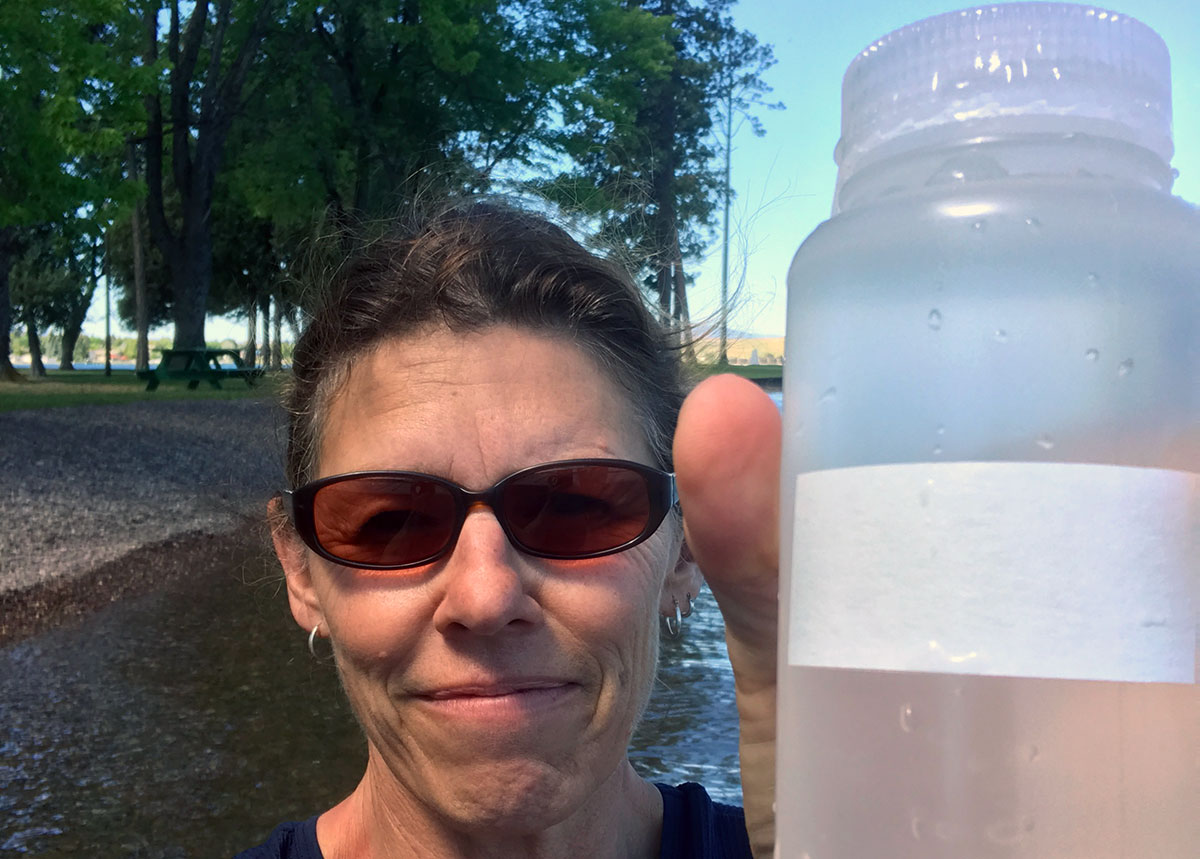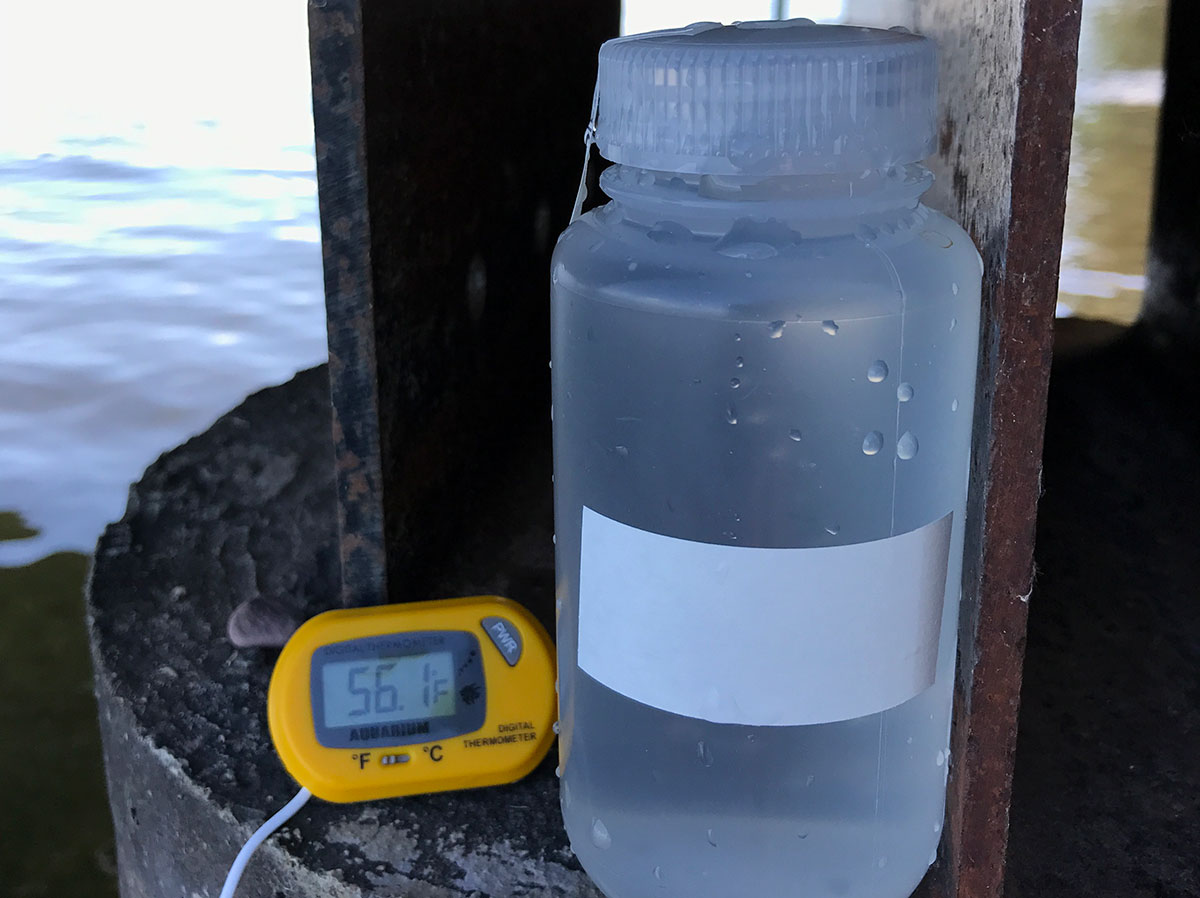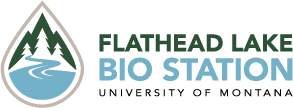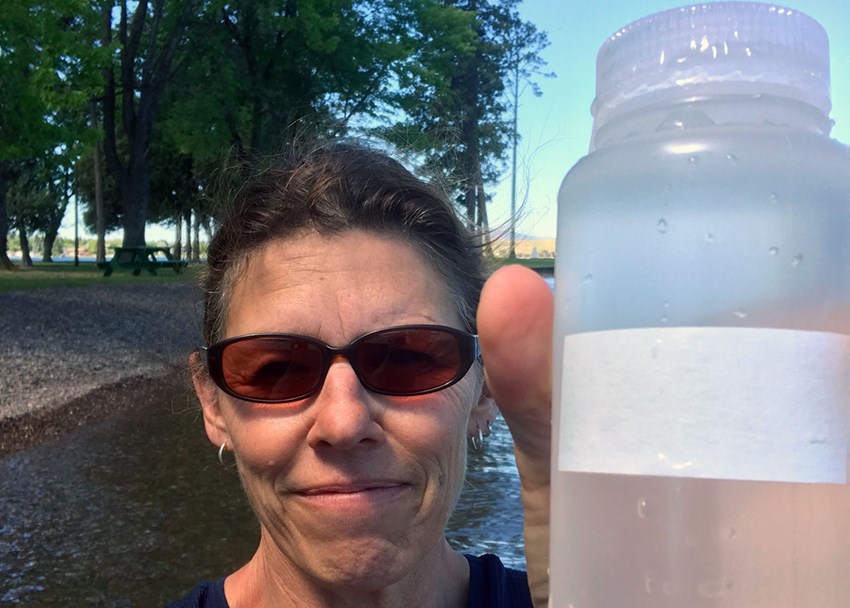Citizen Scientists Making a Difference
Ever wondered what else was swimming in your favorite swimming hole? Now, thanks to the Swim Guide Project and a few dedicated volunteers, those who swim in Flathead Lake can.
Recently, the Flathead Lake Biological Station joined a collaborative effort called the Swim Guide Project, along with the Confederated Salish and Kootenai Tribes and FLOW Swimmers (Flathead Lake Open Water Swimmers), a United States masters Swimming Club located in Polson.
 Dana Johnston with a water sample.
Dana Johnston with a water sample. ©Mark Johnston.
The Swim Guide Project is a collaborative effort between the Flathead Lake Biological Station (FLBS), the Confederated Salish and Kootenai Tribes, and FLOW Swimmers (Flathead Lake Open Water Swimmers), a United States Masters Swimming Club located in Polson. The aim of the Project is to be a community-driven water quality monitoring program providing water quality information on the Swim Guide website and Smartphone App. Swim Guide aims to help its users easily find which beaches are open for public swimming, and whether or not those beaches meet water quality standards.
According to the website, "Swim Guide has helped to prevent thousands of waterborne illnesses simply by making it easy for people to know when their water is contaminated and when it is clean for swimming." It currently delivers real-time water quality information for over 7,000 swimming areas in six countries, including Canada, the United States, Mexico, and Australia.
In the Swim Guide Project, dedicated volunteers go out and collect water samples from their local recreational or public swim areas and then submit those samples to a laboratory for analysis.
The idea for bringing this Project to Flathead Lake came from Mark and Dana Johnston, local community members who founded FLOW Swimmers in 2014.
"They were interested in conducting E. Coli testing at public swim areas," said Adam Baumann, manager of the Bio Station's Freshwater Research Lab, where the water samples are analyzed. "I thought it was a really good idea and we kind of ran with it together. Then they went back to the community to drum up interest in the project."
E. Coli can be transferred to normally clean swimming areas from human waste or local wildlife, especially on hot, stagnant days or after periods of heavy rainfall.
Last year in the Project's inaugural run at Flathead Lake, members of FLOW Swimmers collected samples from three public swimming areas in Polson: City Park, Salish Point, and Boettcher Park. Once a week, a sample was collected from each location and sent to FLBS's Freshwater Research Lab for E. Coli testing. Baumann's team then processed the samples, and returned the data to FLOW Swimmers the following day. At that point, FLOW Swimmers submitted the results to the local newspaper and posted the information on the Swim Guide app.
 Temperature reading on collected water sample.
Temperature reading on collected water sample. ©Mark Johnston.
This year, the number of testing locations at Flathead Lake is expected to double.
"It's only going to keep growing," Baumann said, when asked of the future of the Swim Guide Project. "Not only at Flathead, but surrounding lakes as well. "The people who get involved with community based science projects like this do so because they care about their local environment, their home. In the Flathead Valley, a lot of people care about clean water, so this has a lot of potential."
Funding for the Swim Guide Project is provided locally by FLOW Swimmers Mark and Joslyn Shackleford of Alpine Designs in Polson, and Glenn Malloy of UBS in Denver, Colorado. The Greater Polson Community Foundation also supports the Project and accepts tax deductible donations through its Directed Gift program. You can learn more about the Swim Guide Project by visiting the FLOW Swimmers website.
The Bio Station's Freshwater Research Laboratory is an ecosystem science facility providing both grant/contract and fee-based analytical services. It offers analyses on water, soil, air, biological, and radiochemical samples. Visit the FLBS FRL Services page for more information.


